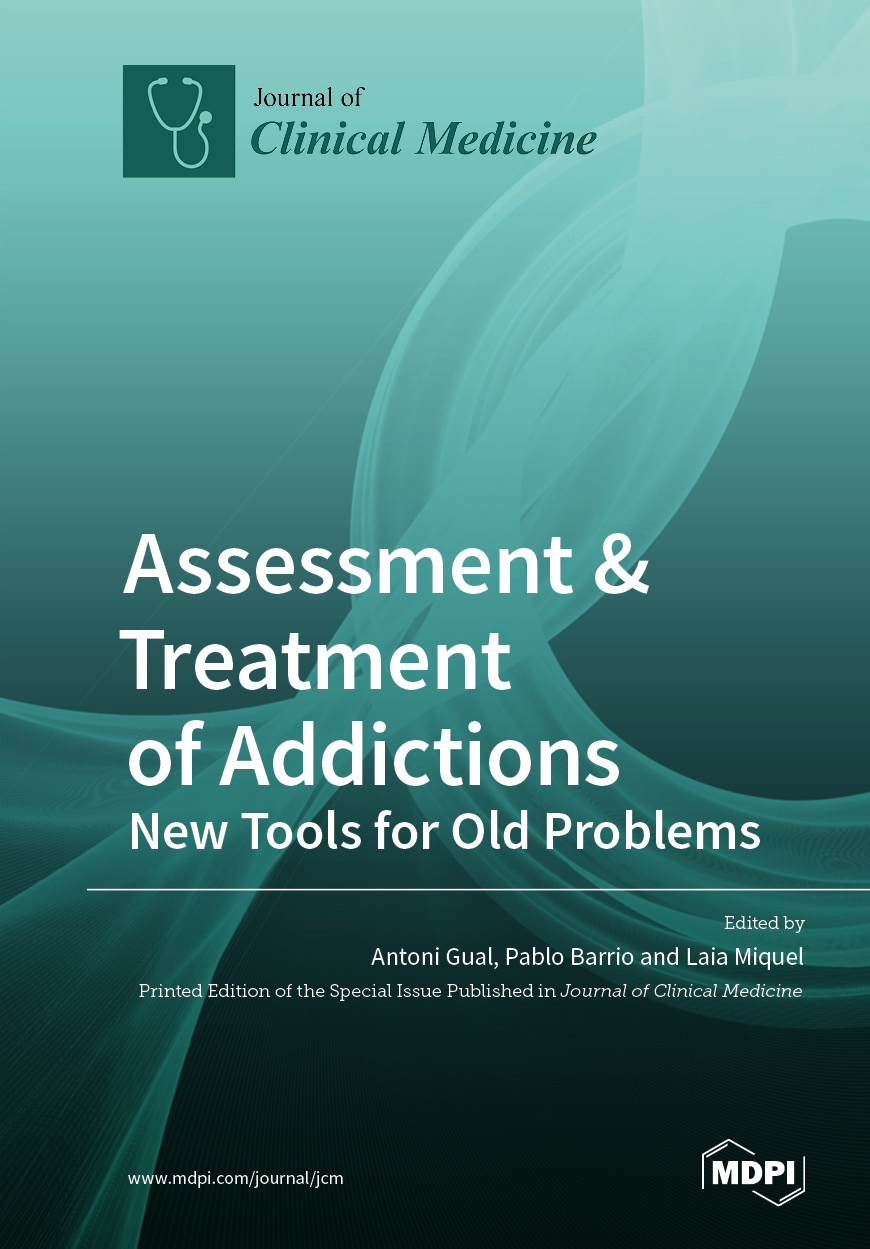Assessment & Treatment of Addictions
New Tools for Old Problems

Download Url(s)
https://mdpi.com/books/pdfview/book/3326Contributor(s)
Gual, Antoni (editor)
Barrio, Pablo (editor)
Miquel, Laia (editor)
Language
EnglishAbstract
Addiction in its various forms represents an enormous challenge to society. Worldwide, it has been estimated that alcohol, tobacco and illicit drugs were responsible of more than 10 million deaths (Anderson et al, 2018), with a higher impact in developed countries where substance use disorders have been identified as responsible for life expectancy reversals (Rehm et al, 2016). Societal and medical responses to the problem are far from optimal, but the appearance of new technologies offers room for improvement, and lots of new initiatives have been launched and developed. In this Special Issue, we will describe and discuss how these new tools are helping to improve the assessment and treatment of substance use disorders. We will cover a wide variety of novelties that are being applied to addiction; e-health, APPs, digital phenotyping, ecological momentary assessment and interventions, wearable technology, computer-assisted tests, transcraneal magnetic stimulation, and virtual reality are just some examples of developments in a field that promises to create a real revolution in the assessment and treatment of addictions.
Keywords
addiction; memory; assessment; substance use disorder; internet gaming disorder; semi-structured diagnostic interview; psychometric properties; adolescents; drinking reduction; nalmefene; phase-IV trial; 6 months; observational; gambling disorder (GD); cocaine use disorder (CUD); craving; repetitive transcranial magnetic stimulation (rTMS); Gambling-Symptoms Assessment Scale (G-SAS); dorsolateral prefrontal cortex (DLPFC); alcohol dependence; transdermal sensor; attitudes; stigma; cerebellum; cannabis; implicit motor learning; motor adaptation; visuomotor rotation; cannabidiol; CBD; psychosis; schizophrenia; substance use disorders; alternative reward; cue exposure; animal and computational models; behavioral control; craving and relapse; habit formation; ALCO-VR; virtual reality; cue-exposure; alcohol use disorder; alcohol craving; anxiety; social drinkers; Pavlovian-to-instrumental transfer; amygdala; alcohol; polygenic risk; high risk drinkers; treatment; assessment instruments; digital health; reward; transgenic mice; optogenetics; self-administration; cocaine; amphetamineWebshop link
https://mdpi.com/books/pdfview ...ISBN
9783039438853, 9783039438860Publisher website
www.mdpi.com/booksPublication date and place
Basel, Switzerland, 2021Classification
History
Social and ethical issues

